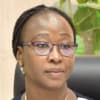
For girls in sub-Saharan Africa, education can be a ladder out of poverty and a way to break cycles of abuse and violence. Yet, there are still steep gender-related barriers to a quality and safe education such as gender-based violence; discrimination; child and forced marriage; lack of access to health care and menstrual hygiene products; unpaid domestic labor; and the prioritization of boys’ education.
Even girls who do access education face a range of challenges, including poor quality facilities, large class sizes, and a lack of qualified female teachers and staff. For girls in fragile and conflict-affected areas, the threats can include kidnapping, injury, forced recruitment, and displacement.
With the COVID-19 pandemic, those challenges have only increased.
At Equal Measures 2030, we have worked closely with stakeholders in both Kenya and Burkina Faso to map data insights and perspectives across the education in emergencies, or EiE, landscapes. Throughout the process, we have realized that the critical contributions of grassroots women’s rights organizations, or WROs, were often missing from the conversation.
Where are the WROs?
As front-line responders, WROs have unique access to the lived realities for girls seeking an education in crisis and conflict-affected areas. They understand the real barriers and challenges these children face. Yet the data showed that there’s often little representation from the grassroots in decision making and policymaking in the EiE field. Many WROs lacked the ability to effectively collect, analyze, and disseminate data, leaving them with little visibility and without access to powerful advocacy tools.
In Burkina Faso, the security crisis that has engulfed the country since 2015 has had unprecedented consequences on education, and mainly on that of girls’, with irremediable consequences for some.
For example, as of December 31 2021, the Ministry of National Education recorded 3,280 school closures, affecting more than 305,000 students. Unpublished research by the Initiative Pananetugri pour la Bien-être de la Femme indicates that during the 2019-2020 school year, 451 students who dropped out of school ended up in gold mining; 238 girls were victims of forced marriages; and 10 had unwanted pregnancies in the Boucle du Mouhoun region.
This high dropout rate of children in general and girls in insecure areas calls into question important achievements in the area of children's rights and the advancement of women. If nothing is done urgently, it would mean that even if Burkina Faso one day managed to push fundamentalist terrorists out of these territories, they would still not have won in the field of the advancement of women. The generation of girls from insecure areas currently being sacrificed do not deserve this fate, and it needs to take advantage of every opportunity to thrive.
In Kenya, the government has made primary education free to all, greatly subsidized secondary education, and provided low-cost boarding schools in a bid to enhance access to education. However, social barriers, high poverty levels, and harmful cultural practices remain barriers to girl’s education. While available national statistics show almost 54% enrollment rates overall, the specificities in Eastleigh and Turkana refugee and host communities reveal in unpublished research that vulnerable host communities and refugee girls have fallen under the radar with much less access to education than the general population.
How to remedy the education gap
Achieving progress for girls and women's education is dependent on accurate and disaggregated data to fuel advocacy, guide interventions, and hold governments accountable.
We have supported WROs with data-driven advocacy training, and this has led to utilization of available data to raise community awareness on the benefits of girls’ education to the development of communities. We have also linked WROs with government officials and policymakers through working groups. This has not only strengthened partnerships but also promoted data-driven advocacy, quality data collection, management, and accountability efforts.
Through our engagement with WROs, we have noted that grassroots WROs clearly understand the local contexts and barriers that girls face and are best positioned to solve community problems and reach the marginalized populations that the government might sometimes struggle to reach.
This success has been attributed to their ability to establish relationships and legitimacy within communities and share a common experience and understanding of gender-based barriers. Through effective relationship management and resourcing, WROs have proven that they can play a key role in driving legal and policy changes to address gender inequality in EiE.
Our work in this field represents a step toward addressing these barriers and gaps by creating more grounded and equitable flows of data and stronger mechanisms of collaboration. Once WROs can use quality data to advocate for girls’ right to education and make their voices heard in decision-making processes, we will not only begin to shift the balance of power in the EiE ecosystem, but we will be able to deliver more responsive, tailored, and effective solutions.




